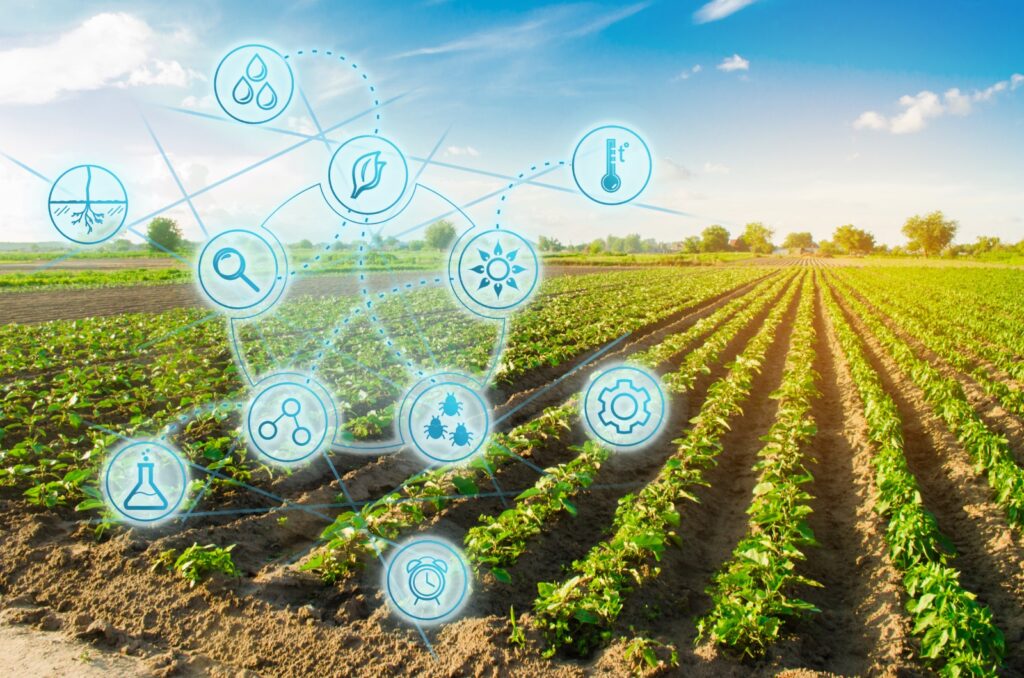How Technology and Satellite Sensors are Shaping the Future of Farming
In recent years, precision agriculture has experienced significant growth in its market, valued at $9.4 billion in 2022, with expectations of a compound annual growth rate (CAGR) of 12.6% until 2030. This remarkable growth reflects a major shift in how farms are managed today using advanced technologies and satellite imagery.

Precision agriculture incorporates a range of advanced technologies such as:
- GPS: Enables farmers to navigate their fields with high precision, contributing to accurate application of inputs like fertilizers and pesticides.
- Sensors: Monitor soil and climate conditions, allowing farmers to make informed decisions to improve crop management.
- Artificial Intelligence (AI): Analyzes diverse data to offer accurate recommendations and forecasts, aiding in improving productivity and reducing waste.
- Satellite Imagery: Increasingly used in precision agriculture to provide accurate data on crop conditions and resource distribution, allowing for better planning and decision-making.
The Importance of Precision Agriculture and Why We Should Care
1.Improving productivity: Precision agriculture technologies help farmers better understand the needs of crops, such as water and nutrient levels, leading to increased production and reduced waste.
2.Cost reduction: With the data provided by technologies like remote sensing and GPS, farmers can apply agricultural inputs like fertilizers and pesticides only where they are needed, reducing overall costs.
3.Environmental conservation: Using resources more thoughtfully helps reduce pollution from excessive use of pesticides and fertilizers. The technologies also improve water management and conservation.
4.Adaptation to climate change: Precision agriculture allows farmers to adapt to changing climatic conditions by monitoring soil and weather changes and making informed decisions in a timely manner.
5.Promoting sustainability: Precision agriculture supports more sustainable farming practices by conserving natural resources and increasing productivity in environmentally friendly ways.

Looking to the Future
The future holds many exciting opportunities for precision agriculture. These technologies are expected to continue evolving with greater integration of AI and the Internet of Things (IoT), leading to smarter and more sustainable farms. We may also see a shift towards more personalized farming practices, where the needs of each plant or animal are individually met, enhancing efficiency and productivity.
Ultimately, precision agriculture is not just an evolution in farming but a step toward a more sustainable and intelligent future for global food security. Satellite companies like SARsat remain at the forefront of this agricultural revolution, offering cutting-edge technologies that improve farming and support long-term sustainability.

